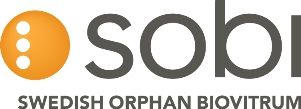预约演示
更新于:2025-05-07
4HPPD
更新于:2025-05-07
基本信息
别名 4-HPPD、4-hydroxyphenylpyruvate dioxygenase、4-hydroxyphenylpyruvic acid oxidase + [7] |
简介 Catalyzes the conversion of 4-hydroxyphenylpyruvic acid to homogentisic acid, one of the steps in tyrosine catabolism. |
关联
3
项与 4HPPD 相关的药物靶点 |
作用机制 4HPPD抑制剂 |
非在研适应症- |
最高研发阶段批准上市 |
首次获批国家/地区 美国 |
首次获批日期2002-01-18 |
靶点 |
作用机制 4HPPD抑制剂 |
原研机构- |
在研适应症 |
非在研适应症- |
最高研发阶段临床前 |
首次获批国家/地区- |
首次获批日期1800-01-20 |
28
项与 4HPPD 相关的临床试验NCT06227429
A Prospective, Non-interventional, Post-Marketing Study to Describe Outcome of Nitisinone Treatment in Hereditary Tyrosinemia Type 1 (HT-1) Patients in Routine Clinical Care in China
This is a prospective, non-interventional, non-comparative, multicenter study to collect data on HT-1 patients in China treated with Nitisinone in a routine clinical setting. No tests or examinations are mandated in the study.
开始日期2025-09-01 |
申办/合作机构 |
CTRI/2024/03/063760
Prospective, Randomised, Double blind, Parallel-group Study to Assess the Safety and efficacy of 2/5mg Once Daily Nitisinone among Indian Patients with Alkaptonuria – A randomised control trial. - Nil
开始日期2024-03-25 |
CTRI/2023/05/052626
Pharmacokinetic and Dynamic Correlation for optimum therapy of NTBC for the Treatment of Indian Patients with Hereditary Tyrosinemia Type 1
开始日期2023-05-15 |
申办/合作机构- |
100 项与 4HPPD 相关的临床结果
登录后查看更多信息
100 项与 4HPPD 相关的转化医学
登录后查看更多信息
0 项与 4HPPD 相关的专利(医药)
登录后查看更多信息
522
项与 4HPPD 相关的文献(医药)2025-05-01·Journal of Magnetic Resonance Imaging
A Review of MRI Acoustic Noise Outputs and Hearing Protection Device Performance
Review
作者: Steckner, Michael
2025-04-01·JHEP Reports
CRISPR/Cas9 gene therapy increases the risk of tumorigenesis in the mouse model of hereditary tyrosinemia type I
Article
作者: Wheeler, David A ; Chen, Tong ; Borowiak, Malgorzata ; Kim, Hyunjae R ; Legras, Xavier ; Pankowicz, Francis P ; Bissig-Choisat, Beatrice ; Hurley, Ayrea E ; Barzi, Mercedes ; Furey, Nika ; Elsea, Sara H ; Yang, Diane ; Sumazin, Pavel ; Bissig, Karl-Dimiter
2025-03-26·Zeitschrift für Naturforschung C
Redefining a new frontier in alkaptonuria therapy with AI-driven drug candidate design via in-
silico innovation
Article
作者: Khan, Ayaz Ali ; Aziz, Tariq ; Ali, Imran ; Naveed, Muhammad ; Albekairi, Thamer H. ; Fatima, Mahnoor ; Zafar, Ali ; Javed, Khushbakht
5
项与 4HPPD 相关的新闻(医药)2024-06-14
摘要:生物类似单克隆抗体(mAbs)需求的不断增长促使稳定高产细胞系的开发,同时减少筛选所需的时间。现有平台已被证明是低效的,导致最终mAb产品在产量、生长特性和质量特征上的不一致性。选择适当的表达宿主、设计有效的基因表达系统、开发简化的细胞系生成方法、优化培养条件以及确定放大和纯化策略,都是哺乳动物细胞中重组蛋白特别是单克隆抗体生产的关键步骤。因此,一个积极的研究领域致力于表达和优化重组蛋白生产。本综述探讨了旨在加速细胞系开发以实现治疗蛋白合成的效率和一致性的最近突破和方法,特别是单克隆抗体。主要目标是弥合日益增长的需求与持续、高质量的mAb生产之间的差距,从而惠及医疗保健和制药行业。
引言
随着靶向生物制剂的引入,特别是单克隆抗体(mAbs),严重和慢性疾病的治疗发生了根本性变化。这些药物显著改变了包括癌症(使用单克隆抗体)、自身免疫疾病、糖尿病(使用人类胰岛素)和贫血(使用如红细胞生成素等替代品)等疾病的治疗方式。抗体,特别是单克隆抗体及其衍生物,包括抗体-药物偶联物、Fc融合蛋白和抗体片段,在诊断和治疗应用方面的广泛范围众所周知。像pembrolizumab(Keytruda)和nivolumab(Opdivo)这样的抗体在癌症免疫治疗领域引起了极大关注。自1992年第一个治疗性单克隆抗体muromonab-CD3获批以来,美国共批准了119个治疗性单克隆抗体,包括两个诊断性单克隆抗体。值得注意的是,这些批准中有很大一部分与癌症无关,证明了抗体作为治疗各种疾病的显著疗效。
抗体批准用于非癌症疾病,如治疗HIV感染(Ibalizumab)和预防偏头痛(erenumab、galcanezumab、fremanezumab),展示了进一步的多样化。此外,美国FDA已批准四种单克隆抗体用于治疗HIV感染、预防呼吸道合胞病毒和吸入性炭疽。一个很好的例子是Adalimumab(Humira),这是2018年世界上销售额最高的药物,作为生物疾病修饰剂皮下给药。它在治疗类风湿性关节炎和其他由TNFα介导的持续性、危及生命的疾病中发挥着关键作用。
图1 细胞系开发的流程:展示了开发基因工程细胞系/克隆群体以生产重组单克隆抗体(mAbs)所涉及的步骤的示意图。
如图1所示,细胞系开发(CLD)是涉及工程细胞系以主要生产重组治疗蛋白的整个产品开发的基本步骤。这涉及使用表达载体,包括调控元件,如启动子、增强子、选择标记基因,以及密码子优化的目标基因(GOI)。GOI的表达受到这些调控元件以及位于基因上游的信号序列的强烈影响。与这些一样,所使用的宿主细胞也是CLD的另一个关键方面。各种哺乳动物细胞系被用作大规模治疗蛋白生产的宿主。这些包括像NS0、SP2/0、中国仓鼠卵巢(CHO)细胞系和像HEK-293这样的人类细胞系。CHO细胞系是生产生物类似药的黄金标准表达系统,因为这些细胞能够精确地进行mAbs的糖基化,并已确立了其监管接受度的记录。与此一起,CHO细胞的增长可以在悬浮培养中规模化,使用化学定义的培养基。因此,在上游过程开发方面取得了相当大的进步,以提高mAb产量并获取对蛋白质功能和稳定性必要的适当PTMs。CLD过程中的第一步是构建含有GOI的表达载体,然后将这个表达载体转染到宿主细胞系中。所使用的转染方法可以从多种选项中选择,如阳离子聚合物、电穿孔或核穿孔。总的来说,CLD是一个复杂的过程,呈现出挑战,如需要保持mAbs的高产量,具有与创新mAb相当的质量和结构属性。细胞生物学、生物化学和生物工程的进步已经彻底改变了从哺乳动物细胞生产治疗蛋白的过程。现有的生物制剂利用商业上可用的平台为治疗蛋白生产生成专用细胞系。然而,当前平台在生长特性、不一致的产量和质量属性方面存在限制。因此,生物制药行业不断寻求开发更新、更有效的方法来克服这些挑战并提高治疗蛋白的生产能力。当我们在CHO细胞系生成的复杂网络中努力时,从效率到产量的路径以科学创造力、技术实力和监管合规性的动态互动为特点。
使用哺乳动物细胞生产mAbs涉及几个关键步骤,这些步骤对确保这些蛋白质的效率和一致性至关重要。这些包括设计有效的基因表达系统、选择合适的表达宿主、开发简化的细胞系生成方法和优化培养条件。这篇综述特别强调了在这些领域中的每一项进展,无论单独还是集体,如何有助于加速治疗蛋白生产的效率和一致性,特别是mAbs。此外,这篇综述提供了对CHO细胞系开发如何从更传统的方法演变为一系列复杂技术,以提高mAb产量和质量的更深入理解。此外,新方法对于优化表达载体、宿主细胞(基因组学到蛋白质组学和代谢组学)和细胞系开发过程至关重要。这些方法在实现大规模、高密度细胞培养、增强基因传递策略、优化下游恢复和分析方法以提高效力和经济效益方面发挥关键作用。本综述中讨论的进展的整合将实现简化的细胞系开发,从而将创新研究转化为治疗产品。研究人员可以探索新的方法来设计细胞系,整合合成生物学的原理,并创建具有改进适应性和生产力的平台,以生产商业上可行的治疗蛋白。
载体工程策略
载体工程领域对于精确调控和提升宿主细胞基因表达至关重要,它显著改变了细胞系的开发。在这个复杂的过程中,载体——在所需细胞中传递和表达感兴趣基因的工具——被战略性地修改和设计。如图2所示,载体元素的修改,如启动子、增强子和染色质修饰元件,可以增强目标基因的表达,并提高基因转移的效率以及对蛋白质分泌至关重要的信号序列。
载体工程的进步已经彻底改变了细胞系开发领域,使研究人员能够在不同系统中表达和研究基因,并促进了针对各种疾病的基因疗法的发展。在本文中,我们讨论了载体工程的最新进展及其在细胞系开发中的应用,特别强调了治疗蛋白的生产。
改变启动子和增强子元件是载体工程的基石之一。这些组分在决定基因如何翻译成RNA然后翻译成蛋白质方面起着至关重要的作用。选择正确的启动子是获得高水平和一致的转基因表达的关键步骤。启动子在合成和处理控制转录起始的信号中起着关键作用。使用了各种启动子,包括像磷酸甘油酸激酶1 (PGK)、人类延伸因子-1α (EF-1) 和人类泛素 C (UBC) 这样的真核异源启动子,以及像巨细胞病毒立即早期 (CMV-IE) 和 Simian Virus 40 (SV40) 这样的病毒异源启动子。人CMV主要即刻-早期增强子/启动子 hCMVp 因在促进转基因表达方面非常有效而经常被使用。SV40 增强子是第一个被发现的顺式作用元件,并且已被证明可以显著提高同源和异源启动子的转录速率 。在一项比较研究中,RSVp 在用于CHO细胞的基于质粒的短暂转基因表达时,显示出仅次于 hCMVp (100%) 的第二高表达率 (92%)。尽管病毒启动子通常用于重组蛋白的表达,但它们容易受到DNA甲基化引起的表观遗传沉默的影响,从而导致表达减少。
图2 载体工程方法:提高重组单克隆抗体(mAbs)表达的关键策略是开发高效率的表达载体,这些载体配备有强启动子、染色质修饰元件,并对信号序列和密码子进行优化。
由内源性启动子如中国仓鼠延伸因子-1 (CHEF-1) 启动子提供的替代病毒启动子是可取的。这些启动子是从通常存在于宿主细胞中的基因衍生的,从而降低了与病毒启动子相关的沉默和压力反应的风险。合成生物学的概念也导致了合成启动子的出现,它们提供了创新和适应性强的转录调控。例如,超级核心启动子 SCP1 结合了几个来源的组分,大大提升了转录速率。
使用对 cumate 敏感的操纵子序列(来自 Pseudomonas putida 的 cymene 操纵子)的 cumate 基因开关是最新开发的哺乳动物诱导系统之一,其工作原理类似于 Tet-On/Tet-Off 系统。在无血清的 CHO 细胞中,基于腺病毒或慢病毒载体的 cumate 基因开关已被研究用于过渡性基因表达。根据产品的不同,LV/CHO 系统产生了短暂转基因表达,具有 6-74 的 ON/OFF 诱导比率(单克隆抗体为 6 倍,抗凝剂、红细胞生成素为 74 倍),这在需要迅速生产相对较小数量的蛋白质时具有优势。cumate 基因开关技术可以修改用于补料批次培养 。CHOBRI/rcTA,最近描述的一种 cumate 诱导稳定 CHO 细胞系,允许可重复合成高达 350 mg/L 的重组抗体和 940 mg/L 的重组 Fc 蛋白 。Poulain 等人也进行了类似的研究,它表明 cumate 基因开关是稳定克隆形成的良好平台,并鼓励在 CHO 细胞中更广泛地使用诱导系统进行大规模生物生产 。诱导系统的关键好处是细胞培养生长和生产阶段的有效独立性。没有受到重组蛋白生产带来的代谢压力的细胞生长和分裂得更快,从而实现了更高的细胞密度。尽管诱导启动子在生物制剂生产中具有广泛的应用范围,但在使用影响细胞健康和生产力的有毒诱导剂方面存在限制。
染色质修饰元件改善转基因转录
与启动子和增强子等元件一样,目标基因(GOI)的表达取决于在宿主染色体上的整合位点。随机整合可能导致不可预测的结果,影响GOI的表达以及内源基因功能。为了克服这种位置效应,已在哺乳动物表达系统中描述了多种染色质修饰元件(CMEs),这些元件可以提高异源产物的产量。这些可以分为1.那些积极将染色质改变为开放的转录状态的(普遍作用的染色质开放元件[UCOEs]和位点控制区域[LCRs])2.那些防止异染色质标记扩散到染色质形成的区域的边界(绝缘子、稳定抗抑制因子[STAR]元件、支架或基质附着区域[S/MARs])。
图3 普遍作用的染色质开放元件(UCOE):染色质修饰元件,如UCOE,保护目标基因(GOI)免受表观遗传沉默的影响,从而保持基因处于开放状态以进行转录。(i) 整合到基因组异染色质区域的进入性GOI通过DNA中胞嘧啶的甲基化等共价修饰被沉默。这导致基因沉默和生产力随时间的丧失。(ii) 在基因盒上游加入UCOE会产生抵抗沉默的开放染色质区域。这维持了GOI的整合独立状态,因此延长了生产力的维持时间。
普遍作用的染色质开放元件(UCOEs)是保持染色质开放的序列,从而实现一致的高水平的转基因表达,如图3 所示。这些UCOEs具有无甲基化CpG岛,被发散转录的启动子所环绕,类似于管家基因的调控方式。UCOEs的上游整合被发现可以提高表达水平并抵抗基因沉默。Nematpour等人评估并得出结论,UCOEs的使用与重链结合大大增强了mAb表达的水平和稳定性,从而产生了更高产量的更稳定的细胞系。Doan等人通过使用结合UCOE和DHFR的载体构建,提高了CHO-DG44细胞中抗TNFα mAbs的表达。这些研究清楚地强调了UCOEs在增强转基因表达中的作用,从而被证明是商业生产mAbs的良好选择。
另一组CMEs包括S/MARs,它们是富含AT的实体,使DNA附着和高阶环的创建成为可能。它们对结合核基质或支架具有高亲和力,体外。在计算机上的研究表明,核小体定位基序和众多转录因子的结合位点的存在与MARs提高转基因产量的能力有关。当S/MAR插入到启动子之前控制GOI时,通过在整合位点生成独特的染色体域来保护转基因免受表观遗传沉默的影响。人类血红蛋白、干扰素和鸡溶菌酶50区域的MAR已被描述,并成功用于提高稳定转染的CHO细胞中的转基因产量。与UCOEs相比,MAR活性似乎较少见。尽管由于其巨大的大小和作用方式理解不足,管理MARs可能是不可预测的,但更多的研究无疑将带来更好的理解。
其他染色质修饰元件的使用,如绝缘子和稳定抗抑制因子(STARs),并没有显著增加转基因表达。尽管早期报告表明这些元件相当有效和有前景,但该系统从未在工业中完全实施。虽然这些元件中的一些在早期研究中显示出希望,但它们的全部潜力仍在探索中。这些元件的效果因几个参数而异,如整合位点、宿主细胞系以及GoI的特征。
有几种技术用于优化基因表达以合成治疗蛋白。虽然经常使用强天然病毒启动子来实现高水平的表达,但合成启动子库准确调节转录强度。病毒和哺乳动物异源启动子都容易受到转录抑制的影响,这解释了为什么内源性CHO启动子如CHEF-1α是有利的替代品。诱导系统,如Tet-On或cumate基因开关,可以将生长和生产阶段分开。此外,保证表达稳定性至关重要,通过在表观遗传水平上工作的元件如MARs和UCOEs实现,以维持整个培养过程中的转录许可染色质状态。染色质修饰元件在未来可能会以更高级的方式使用。
密码子优化和信号序列的使用
密码子优化描述了通过利用同义突变来提升GOI蛋白表达的方法。由于不同细胞中转运RNA的丰度不同,以及它对mRNA稳定性和转录本产生的二级结构的影响,密码子优化对于基因表达至关重要。使用DNA洗牌的实证方法,早期对CHO细胞中绿色荧光蛋白(GFP)的基因表达进行密码子优化尝试,使产量提高了42倍。随着对哺乳动物细胞理解的加深,现在有更合理的密码子优化方法,并且使用所谓的密码子适应指数来评价一个基因对表达优化得有多好。关于CHO细胞的最新蛋白质组学研究涉及了对密码子使用的全面评估。发现脯氨酸、苏氨酸、天冬氨酸和半胱氨酸更倾向于特定的密码子。在CHO和人类细胞中使用基于密码子使用的优化,观察到mAb表达的提高在1.5到四倍之间。一些研究声称密码子优化主要增加了mRNA水平。
人类IgG抗体由两个相同的重链(HCs)和两个相同的轻链(LCs)组成。为了将HC和LC蛋白复合物运输到内质网进行正确的折叠、组装和翻译后修饰,HC和LC需要正确的信号肽。与使用天然IgG LC信号肽相比,使用人血清白蛋白产生的信号肽使稳定mAb产生的CHO细胞小池的平均比生产率翻了一番多,超过40 pg/cell/day。通过密码子优化和选择合适的信号肽,在CHO细胞中展示了pertuzumab产量的两倍增加。
总之,载体工程是一个多方面且不断扩展的领域,它推动了细胞系的创造。研究人员可以通过系统地调整载体元素,在宿主细胞中获得最佳的基因表达和蛋白生产。这在研究、生物技术以及医学中有广泛的应用,允许合成治疗蛋白、研究基因功能和发展新的基因治疗。随着学科的发展,载体工程将在未来分子生物学和生物技术领域中发挥越来越重要的作用。
宿主细胞工程
CHO细胞是生物制药行业中生产生物类似药和其他治疗蛋白的首选,因为它们具有哺乳动物的特性,有助于正确的蛋白质折叠和糖基化,以及在悬浮培养中的有效可扩展性。然而,使用中国仓鼠卵巢(CHO)细胞生产生物制药面临着由于治疗蛋白需求不断增长所带来的重大挑战。为了满足这些需求,研究人员转向了细胞工程的创新策略。这些策略通常涉及操纵CHO细胞内特定基因的活性以实现期望的结果,如增强蛋白表达和提高细胞活性。这是通过技术如某些基因的过表达、CRISPR-Cas介导的敲除(涉及沉默特定基因)或敲降(涉及减少特定基因产物的表达)来实现的。
开发了CHO细胞变体,在多个关键方面优于其亲本细胞系。这些包括提高的生长速率、增加对凋亡(程序性细胞死亡)的抵抗力、改善的代谢活性、在蛋白合成方面的增强生产力,以及定制具有特定糖基化模式的重组蛋白的能力。此外,最近的进步导致了悬浮细胞系的创建,这些细胞系更易于管理,并且可以更有效地扩大规模用于大规模生产。本节重点介绍通过基因组修饰实现改善重组蛋白生产的宿主细胞工程的发展。
工程细胞死亡
细胞死亡触发代谢物的积累和压力中断,导致细胞培养和生物过程产量的不平衡。此外,细胞死亡引入蛋白酶,导致产品不稳定和酶阻碍期望的产品合成。培养基中营养物质的不足促使细胞缺乏,诱导宿主细胞的自噬。操纵控制凋亡和自噬的基因提供了一种延长培养可持续性的方法,详细见表1、2和3。通过哺乳动物细胞工程提高细胞活性,目标是凋亡和自噬基因,如图4所示。通过增加特定的B细胞家族(BCF)蛋白如BCL-2和BCL-XL的表达,增加细胞活性,抑制凋亡触发。BCL-2相关基因也抵消了各种细胞线中的生理压力,提高了单克隆抗体(mAb)的产量和细胞寿命。
SIRT6是一种应对压力的蛋白质,它调节DNA修复和基因组完整性,对细胞存活和寿命起着关键作用。Hashemi等人通过稳定过表达SIRT6对CHO-K1细胞进行了工程改造,评估了其对凋亡相关基因和单克隆抗体(mAb)生产的影响。值得注意的是,经过SIRT6工程改造的细胞显示出增加的BCL-2 mRNA水平,并且与亲本CHO-K1细胞相比,caspase-3和Bax mRNA表达减少。这与更高的细胞活性和减少的凋亡进展相吻合。此外,在SIRT6工程克隆中的短暂和稳定表达期间,IgG1 mAb效价显著提高了1.7倍和2.8倍。
众所周知,应用siRNA沉默促凋亡蛋白FADD、Alg-2和REQUIEM可以增强CHO细胞培养密度和生产力。MacDonald等人最近的一项研究利用CRISPR‐Cas9技术对BCL‐2家族的关键效应蛋白Bak1、Bax和Bok进行组合敲除(KOs)。研究发现Bak1和Bax表现出协同的抗凋亡特性,而Bok的缺失影响最小。Bak1和Bax的缺失有助于延缓和减轻细胞死亡进展,揭示了它们在CHO细胞培养性能中的重要性。Rahimi等人的研究也显示了类似的结果,其中破坏Bax导致工程克隆中的细胞活性延长和增殖率增加。操纵细胞中Bax蛋白表达的减少导致增强了对压力诱导的凋亡耐受性,对凋亡诱导剂oleuropein的抗性,并显著提高了重组蛋白生产水平。
自噬是细胞在压力下恢复平衡的重要过程,它影响蛋白质表达动态。敲除ULK1,自噬启动的关键参与者,导致在稳定Cripto-Fc生产细胞中蛋白质表达增强了三倍。这些发现强调了自噬、蛋白质表达和细胞稳态之间复杂的相互作用,突出了有针对性的干预优化细胞机械以提高蛋白质生产的潜力。
这些研究表明,调节凋亡和自噬途径至关重要,因为导致细胞死亡的因素、代谢失衡和产品不稳定之间存在复杂的相互作用。此外,自噬、蛋白质表达动力学和细胞稳态之间的联系为靶向治疗提供了基础,为优化细胞过程以实现更高的mAb生产具有巨大的潜力。
宿主细胞代谢途径工程
宿主细胞的代谢活动会产生各种废物,这些废物可能阻碍细胞生长并影响产品产量。增加的葡萄糖和谷氨酰胺摄取率会导致乳酸和氨的积累,妨碍细胞增殖和产品生产。研究表明,控制培养基中的葡萄糖和谷氨酰胺水平可以防止这些有害代谢物的积累。CHO细胞培养中抑制性废物产物的显著部分来自氨基酸的分解。在Mulukutla等人的一项研究中,工程化CHO细胞在补料批次培养中被设计为减少特定氨基酸代谢产物的产生。这是通过针对与苯丙氨酸-酪氨酸和支链氨基酸相关的途径来实现的。在苯丙氨酸-酪氨酸途径中过表达表达不足的基因减少了抑制性副产品。在支链氨基酸分解途径中,敲除BCAT1基因消除了有问题的代谢产物产生,从而在补料批次培养中改善了细胞生长和生产力。
策略性地工程化宿主细胞内的代谢途径已成为减少不良废物代谢物产生和积累的有效方法。相关基因精心策划了这些效应,详细列在表1、2和3中,概述了它们修改的有效性。
乳酸脱氢酶(LDH)在将丙酮酸转化为乳酸的过程中至关重要,这一过程由NADH/NAD+辅酶对驱动。LDH已被确定为目标,使用如功能丧失突变等技术在宿主细胞中进行操纵。CHO细胞中LDHA基因的单等位基因敲除诱导了一种代谢状态,减少了乳酸产生并增加了重组蛋白生产,如图5 所示。Ley等人利用CRISPR-Cas9基因组编辑修改了九个不同氨基酸分解途径中的基因。这导致了通过扰动单个氨基酸分解基因而显著减少特定的乳酸和铵分泌。这些变化与增加的生长速率和整体活性细胞密度相吻合。观察到铵(高达26%)和乳酸产生(高达22%)的显著减少,强调了针对性基因中断,特别是Hpd和Gad2,在抗体生产场景中微调细胞性能的潜力。
优化工作还针对负责葡萄糖和谷氨酰胺摄取的转运蛋白。Wlaschin等人通过RNA干扰(RNAi)下调膜结合葡萄糖转运蛋白GLUT5,减少了葡萄糖消耗并减轻了乳酸和氨的积累。增强宿主细胞代谢所必需的蛋白质与提高培养活性和更高产品产量相关联,如表1中详细讨论的。
此外,研究人员还探索了除三羧酸(TCA)循环之外的替代代谢途径。例如,生产组织型纤溶酶原激活剂(tPA)的CHO细胞通过修改半乳糖代谢中的关键步骤来限制乳酸合成。这涉及增强半乳糖激酶(Galk1)的表达,这改善了生物量和产品合成。CHO-Galk1细胞表现出增强的葡萄糖和半乳糖生长期中的糖酵解通量,使它们能够以半乳糖作为主要碳源生存。虽然乳酸产生减少,但代谢调整被注意到,强调了需要进一步改进以优化半乳糖代谢和营养利用。在另一项研究中,Tang等人证明,删除负责将磷酸烯醇丙酮酸(PEP)转化为丙酮酸的丙酮酸激酶肌肉(PKM)基因,减少了中国仓鼠卵巢(CHO)细胞中的乳酸分泌。敲除丙酮酸激酶肌肉同工型1和2(PKM-KO)和同工型1(PKM1-KO)导致改变的葡萄糖消耗,氨基酸代谢,减少乳酸分泌,并与野生型细胞相比,IgG效价更高。
宿主细胞代谢的操纵已成为CHO CLD中的一种强大策略。通过调节特定基因表达,已在CHO细胞的开发中取得了显著进步。这些修改有望增强细胞活性并提高免疫球蛋白Ig效价,同时减少细胞死亡率。一个核心重点是减少培养环境中乳酸和氨的产生。此外,还探索了从TCA循环偏离的替代代谢途径的转变,以优化细胞的代谢框架。这些累积策略强调了代谢工程在定制CHO细胞以实现提高性能和放大Ig生产中的有效性。
工程化细胞周期
改造哺乳动物细胞系的生长和分裂方式,特别是对于生产单克隆抗体(mAbs)至关重要的细胞系,提供了增加细胞密度和产量的途径。经过工程改造的细胞系表现出高生长速率,这反过来又导致营养稀缺、有毒代谢产物的积累和氧气耗尽。这在批量培养中普遍存在,导致细胞密度迅速下降。为了解决这些问题,采用策略性干预来平衡生长和产品形成。这些策略中的关键蛋白是细胞周期抑制因子,如p21CIP1和p27KIP1,它们在DNA损伤后阻止细胞分裂中发挥关键作用。另一种蛋白,干扰素调节因子-1(IRF-1),可以作为靶点来减缓细胞生长并增加IgG抗体的产生。
表1 利用基因过表达对CHO细胞工程进行目标基因和途径的列表
表2 使用基因敲除对CHO细胞工程进行目标基因和途径的列表
表3 使用基因敲减对CHO细胞工程进行目标基因和途径的列表
重点是增强调节细胞增殖和活性的基因。表1提供了这些基因及其影响的列表。在细胞周期中共同表达检查点蛋白,如细胞周期依赖性激酶样3和细胞色素c氧化酶亚基15,显著增加了最大活性细胞密度。当在CHO细胞中过表达c-myc基因时,也观察到了类似的改善,导致细胞密度显著增加了70%。
图4 防止凋亡工程的策略:通过遗传修饰来防止凋亡/自噬,目标是敲除/抑制促凋亡基因或过表达抗凋亡基因。(i) 将GOI转染到宿主细胞中,形成具有特定生长和生产力特性的生产细胞系。(ii) 当使用遗传工程宿主细胞进行生产时,这种生长和生产力特性会得到增强。这些经过遗传操作的宿主细胞系利用CRISPR/Cas9和siRNA等工具来防止或延迟凋亡,从而在生产期间的更长时间内保持细胞健康。
将细胞生长与生物治疗药物生产解耦已成为生物制药领域越来越受欢迎的策略,特别是对于难以表达的产品。典型的方法包括在没有同时产生重组蛋白的情况下培养细胞至高密度(称为生长阶段)。随后,触发重组蛋白的表达,并停止细胞增殖(生产阶段)。这通常通过结合诱导型基因表达系统和控制增殖的策略来实现。生长和生产阶段的分离优化了细胞资源的分配,提高了生长特性和难以生产蛋白的产量。
然而,目前控制哺乳动物细胞增殖的方法依赖于温度变化和化学试剂。这些方法与许多非增殖途径相互作用,导致对产品质量和培养活性产生不同的影响。相比之下,合成生物学提供了一种替代方法,策略性地针对增殖途径以阻止细胞生长。令人惊讶的是,这些合成生物学技术尚未得到广泛利用。针对细胞增殖控制的靶向代表了在G1阶段特别阻止细胞增殖的潜在解决方案,G1阶段的特点是细胞更大,核糖体蛋白S6水平更高,同时保持产品质量。细胞周期的有序进展依赖于各种细胞周期调节因子的受控激活、降解和合成。
合成生物学在将生长和生产分离到哺乳动物细胞中的潜力已经在“按设计纯度”的细胞系中部分实现。启动咖啡因诱导的哺乳动物蛋白激酶R有效地停止了非产品蛋白的翻译,另外还有病毒IRES序列作为额外的保障,确保重组蛋白生产的保护。尽管取得了这些进展,但由于从IRES序列的翻译无法获得完整的核糖体机械装置,因此可实现的效价受到限制。
工程化糖基化
在哺乳动物细胞中生产治疗性抗体涉及一个复杂的过程,其中包括各种修饰,其中之一就是糖基化。糖基化模式在决定单克隆抗体(mAbs)在人体内的行为和效力方面至关重要。这些模式影响诸如抗体在血液中的持久性、引发免疫反应的潜力以及有效执行其预期功能的关键因素。异常的糖基化模式可能导致免疫反应和mAb效力下降,这使得在生物制药生产中必须解决这个问题。
研究人员正在积极探索策略,以微调治疗性抗体中的糖基化模式。一种方法涉及操纵特定基因以诱导更类似于人类的糖基化模式。这些针对性的基因操纵,如表1所强调的,有潜力生产出糖基化模式与人类等同的mAbs,从而提高它们在给患者施用时的兼容性和效力。
图5 宿主细胞乳酸代谢的调控。在哺乳动物细胞中,减少补料批次过程中乳酸的形成是使用的一种有效的代谢工程技巧。(i) 利用乳酸脱氢酶(LDH)从丙酮酸生成乳酸,导致培养基酸化以及增加的氧化应激,从而导致细胞死亡。(ii) 降低LDH基因的表达减少了乳酸水平和活性氧(ROS)的生成,维持了细胞在补料批次培养中更长时间的活性。
另一种策略侧重于控制N-糖基化途径,以增强重组抗体上的糖链结构。通过协调这一途径,研究人员已经实现了抗体糖基化模式的显著改善,这可以有助于更好的治疗效果。相反,另一种途径涉及抑制宿主细胞内的特定糖基化途径。这种操纵允许生产具有定制糖基化模式的mAbs,解决了不适当糖基化的问题,并增强了这些抗体的治疗潜力。例如,MGNT和MGAT1等目标基因敲除已经证明这种方法在中国仓鼠卵巢(CHO)细胞中的可行性。用于生产具有定制糖基化模式的单克隆抗体的基因已在表2和3中列出,以及所使用的干预方式,基因敲除或敲降。
在最近的研究中,像CRISPR-Cas介导的基因干预这样的新型基因工程技术已经成为改变mAbs糖基化模式的强大工具。Shen等人利用CRISPR‐Cas13d技术精确控制与CHO细胞中的糖基化、代谢、凋亡和其他关键细胞过程相关的基因表达。这项技术大幅减少了IgG岩藻糖化,并有效抑制了90%以上的FUT8基因表达。在Yang、Wang等人的另一项研究中,利用CRISPR-Cas9介导创建了FUT8基因敲除的CHO细胞系。这种基因敲除不仅影响了核心蛋白岩藻糖化,而且对各种糖基化机制产生了更广泛的影响,导致蛋白质糖基化谱的相对丰度发生变化。
此外,研究人员还探索了调节糖基化途径以优化抗体糖型谱。在Prabhu等人的一项研究中,通过策略性地敲除与糖基化途径相关的基因,修改了重组IgG的糖型谱。这种方法抑制了UDP-Gal和GDP岩藻糖的生产,这些是糖基化中的关键分子。有趣的是,工程化细胞系依赖于一个挽救途径,通过操纵细胞外半乳糖和岩藻糖水平来调节糖基化水平。这种创新方法允许生产具有特定糖基化谱的糖工程蛋白,以增强生物活性和靶向治疗应用。
此外,探索mAbs上特定的唾液酸残基,如N-糖基神经氨酸(NGNA),已经揭示了过表达特定基因的潜在好处。Fischer等人进行了一项涉及CMAH基因的研究,该基因与NGNA唾液化有关。通过修改CMAH基因位点,他们成功增加了NGNA唾液化水平。这种改变经过精心执行,涉及创建一个催化失活的CMAH蛋白版本,导致工程细胞表面糖蛋白上的NGNA唾液化增强。这一突破表明设计具有改变唾液化模式的抗体,可能增强其治疗属性。
这些在宿主细胞工程方面的进展加速了生物制药行业朝着更高效和可靠的制造工艺发展。研究人员通过理解和改变复杂的生物途径,提高了细胞存活率和蛋白表达。他们还发现了操纵糖基化模式的独特方法,这是治疗干预有效性中的关键因素。现代方法如CRISPR-Cas介导的基因编辑可以使改变更加精确和针对性。这些进展不仅解决了产品稳定性和可扩展性的问题,而且还为定制特定产品特性以满足各种治疗需求打开了大门。宿主细胞工程定位于成为决定生物制药发展方向的关键因素,因为该领域持续扩大。
选择和扩增
在用适当的表达质粒转染后,生产宿主细胞系会受到选择压力,以产生具有基因组整合表达载体的稳定细胞库。已经开发了几种技术来选择特定的染色体基因以及这些基因的扩增。通过与非选择性目标基因一起共转染可以用于基因扩增的基因,这种基因扩增可以比仅通过传统基因转移单独产生任何特定基因产物产生更高的产量。
DHFR基础平台
使用DHFR表达载体与DHFR缺陷的CHO细胞结合是基因转移和扩增最受欢迎的方法。由于CHO细胞非常适合生产蛋白质,它们已被用来创建几种具有高商业价值的蛋白质。二氢叶酸还原酶(DHFR)和谷氨酰胺合成酶(GS)选择/扩增平台通常被用于稳定和均匀的mAb生产。在接受细胞转染表达载体后,编码所需蛋白和DHFR的DHFR阳性转化子被分离出来。然后选择转化细胞群体,以抵抗DHFR抑制剂甲氨蝶呤(MTX)的增长水平。使用这种方法可以分离出具有提高的DHFR蛋白水平和扩增的DHFR基因拷贝的MTX抗性细胞。由于DHFR和目标基因在物理上接近,它们会共同扩增。这种促进蛋白质过表达的技术非常有效,至今仍是最流行的共转移和共扩增方法。
然而,扩增产生的多重串联载体重复可能不稳定,这使得它费力、耗时,并随着时间降低产量。减少DHFR选择标记的表达是提高基因拷贝数以改善转基因转录的另一种策略。只有具有最高转录活性位置的细胞才能在筛选中存活。在Naddaf等人的研究中,使用phiC31整合酶技术将DHFR选择标记用于创建一个高表达质粒,可以用于在CHO-DG44细胞中表达Blinatumomab的研究,并预期其使用。在Min等人的平行研究中,甲氨蝶呤介导的基因扩增与位点特异性整合相结合,开发了高产rCHO细胞系。这种混合细胞系开发方法有潜力提高在生物制药制造中常用的CHO细胞的蛋白质生产效率和产量。
GS基础平台
谷氨酸合酶(GS)选择方法也在CHO细胞中广泛使用。谷氨酸合酶催化谷氨酸向谷氨酰胺的转化,由GS基因编码。由于谷氨酰胺是一种必需的氨基酸,细胞在没有GS表达的情况下无法在无谷氨酰胺的培养基中生长。然而,CHO细胞通常在无谷氨酰胺的培养基中表达GS。因此,为了能够使用GS作为可选择性标记,必须在细胞培养基中加入竞争性抑制剂MSX。通过加入MSX,只有那些在质粒载体中表达GS可选择性标记并因此产生更多GS的细胞才能在筛选条件下存活。细胞系的工程化以及转染和选择过程的优化一直是提高GS基因选择强度的主要领域。研究表明,使用锌指核酸酶(ZFN)技术敲除CHO细胞中的内源GS基因,可以产生对MSX选择更敏感的多个细胞系,并增加了重组mAb高产频率六倍,提高了细胞系开发和克隆筛选程序的有效性。在抑制内源GS基因表达的同时,通过提高细胞培养基中的谷氨酰胺含量,可以在使用相同浓度的MSX时有效增加选择强度。
这两种技术在转染后都需要多轮扩增,尽管它们使用不同的代谢途径(DHFR的核苷酸代谢和GS的谷氨酰胺代谢)。因此,使用有毒化学物质和专用培养基需要昂贵且耗时的开发。与GS平台相比,DHFR平台的扩增需要更长时间,因为需要使用类似物(MTX或MSX)进行多轮扩增,如图3所示。在爱丁堡大学,创建了一种名为OSCAR™的新表达系统。该系统依赖于部分失活的微小基因载体,编码酶,次黄嘌呤磷酸核糖基转移酶(HPRT),这是通过典型的细胞挽救途径所需的嘌呤合成。当其中一个微小基因和GOI被转染到HPRT缺陷的哺乳动物细胞中时,细胞被培养在一种选择性的次黄嘌呤氨基蝶呤胸腺嘧啶(HAT)培养基中,阻止了新的嘌呤合成。因此,使用失活的HPRT酶的挽救途径对细胞存活至关重要。由于这种酶对细胞存活需要高浓度,OSCAR™系统在比传统的DHFR和GS系统更短的时间内,以单步选择了GOI并进行了扩增。与传统系统相比,OSCAR™创造了细胞,其稳定表达产量提高了七倍,由于没有特殊培养基和危险物质,材料成本降低了七倍,使其成为一种迅速的技术。尽管OSCAR™是一种新技术,但需要进一步研究以确定它是否可以应用于更广泛的细胞和培养基类型,以及其在生物反应器中的性能。
在通过DHFR或GS平台进行选择后的转染体产生群体经过筛选和扩增后,这个细胞池(通过DHFR或GS平台产生)被进行单细胞克隆,以产生单克隆群体(图6)。
高通量筛选和筛选系统
转染群体被视为一池细胞,因为它是由转染基因盒数量和位置显著不同的异质细胞混合而成的。这导致了具有不同遗传和表型特征的细胞群体,这些特征影响产品质量和稳定性。此外,生长速率和代谢特征的差异将显著影响产品特征。因此,有必要建立表型和遗传上相同的生产细胞系。同样,监管指南规定,生产细胞系必须是单克隆的,并起源于单个祖先细胞。因此,单细胞分离和克隆筛选系统是生物技术和生物制药行业中关键的工具,用于识别和选择高质量的细胞系。这些系统允许研究人员分离单个细胞,克隆它们,然后筛选它们以获取理想特征,如高生产力或蛋白质质量。
图6 DHFR/MTX 和 GS/MSX 选择和扩增系统:利用MTX(叶酸的类似物,是嘌呤和嘧啶从头合成所必需的)扩增含有相邻GOI的DHFR基因载体。MTX的浓度逐渐从10纳摩尔(nM)增加到1000 nM,并且需要多轮扩增,这需要更多的时间来建立细胞系(12-14周的DHFR扩增)。在GS-MSX系统中,MSX作为谷氨酸的类似物和谷氨酰胺(必需氨基酸)的前体,用于增强GOI的扩增。在这里,建立选定细胞池所需的时间相对较少,因为使用了25到50微摩尔(µM)的MTX浓度,并且不像DHFR-MTX扩增那样需要那么多轮的扩增。
限制稀释是最早和最广泛使用的单细胞分离方法之一。该方法涉及将细胞连续稀释,直到分离出单个细胞并将其培养成克隆群体。虽然限制稀释(LD)是一种低通量技术,但它是一种有价值且可靠的单细胞分离和克隆选择方法。然而,由于细胞倾向于聚集在一起,以及该技术的手动性质,建议进行两轮限制稀释以确保单克隆性。
荧光激活细胞分选(FACS)是另一种广泛使用的单细胞分离方法,它利用荧光标记和自动化细胞分选。FACS能够高通量地进行单细胞分离,并已用于各种应用,如干细胞和免疫细胞的分选。ClonePix系统是一种高通量单细胞分离和克隆筛选系统,它使用基于图像的技术。该系统可以挑选单个细胞并将它们分配到微孔板中,允许同时高效筛选和分析多个克隆。其他使用基于图像的技术来分离和筛选单细胞的高通量系统包括视频成像板系统(VIPS)、cellcelector和单细胞打印机。这些系统可以将单个细胞分配到多孔板中,允许高通量克隆筛选。Josephides等人报告了使用Cyto-Mine单细胞分析和单克隆性保证系统,该系统采用皮升滴技术筛选数百万滴液,允许以自动化方式分析单个细胞并分配单个细胞。这些高通量技术比传统方法更受青睐,提供了更高的单细胞选择精度和准确性,从而提高了克隆性和可重复性。此外,这些自动化解决方案提供文档记录,协助符合监管要求,确保结果的可追溯性,确保克隆开发的质量问题。
转染策略
在产品细胞系开发中,将所需的表达载体传递到宿主细胞的策略至关重要。这取决于宿主细胞系的类型、产品类型及其产量,以及重要的监管合规性。转染策略包括基于试剂的方法,如使用阳离子脂质、二乙氨基乙基(DEAE)-右旋糖酐、聚乙二醇化聚乙烯亚胺、磷酸钙和阳离子聚合物或其树状分子介导的传递、病毒介导的传递以及基于仪器的传递方法,如电穿孔和显微注射等。非病毒传递技术因已获得监管机构批准用于人类用药的蛋白质生产而受到欢迎。
初步的DNA传递技术,如磷酸钙沉淀和DEAE-右旋糖酐,非常经济,但常与较差的转染效率和高水平的细胞毒性相关。阳离子聚合物,如聚乙烯亚胺(PEI),是常用的、经济的、非细胞毒性的试剂,可以扩大到数百升,并实现几乎100%的转染效率。市场上可购买的试剂,如jetPEI®,已被生物制药行业用于大规模生产治疗性蛋白,使用HEK 293和CHO细胞平台。然而,PEI与一些生长介质的成分不兼容。
另一种被广泛接受的将外来DNA引入宿主细胞的方法是电穿孔或电场介导的通透性,这涉及将细胞暴露于短暂的电脉冲中,以在细胞膜上形成瞬时孔隙。在最佳电场强度、脉冲长度、缓冲液电导率、波形和脉冲数量下,这种方法提供了高转染效率、高细胞活性、易用性和适用于不同细胞类型,且不改变宿主细胞的生物结构或功能。据报道,微流体电穿孔方法,即细胞在通过电场室时进行电穿孔,允许使用设备如MaxCyte VLX®可扩展转染系统进行大规模转染。
核转染是传统电穿孔方法的重大进步,它允许通过电场和特定于细胞类型的溶液组合直接将DNA传输到细胞核。Amaxa开发了一种专利的商业电穿孔系统,称为Nucleofection™,目前由Lonza拥有。有几种专利的细胞特异性缓冲液旨在最大限度地提高转染效率,同时最小化细胞死亡。由于Nucleofection™技术能够转染各种难以转染的细胞,核转染技术在研究人员中变得相当流行。
工艺优化
使用哺乳动物细胞培养生产生物制剂的最优产量在很大程度上依赖于培养基和饲料的优化(如图7所示),因为这些过程在增强细胞生长和蛋白质生产中起着至关重要的作用。
图7 影响过程优化的因素:各种因素,如培养基和饲料优化、过程参数(pH、溶解氧、温度)优化、生物反应器设计以及纯化过程,都有助于开发高效的生产流程。
在饲料和培养基优化方面已经取得了一些进展,以提高生物制剂的产量。例如,使用动态喂养方式和计算机生物模拟(“数字孪生”)以及代谢途径的基因组规模通量分析来优化培养基组成是一些已经开发的先进技术。Saldanha等人使用偏最小二乘模型来识别增加mAb生产力的关键成分。推断得出,虽然TCA循环中间体和几种维生素的浓度在mAb生产处于高峰时对静止相有显著影响,但几种氨基酸、丙酮酸和吡哆醇的初始浓度影响了早期细胞生长。详细了解细胞如何响应各种培养基成分、喂养方法、气体交换和其他参数对于有效的培养基开发和优化过程是必要的。
培养基和饲料优化可以采用不同的技术进行,例如实验设计(DoE),这是一种用于设计和分析实验的统计方法。Mora等人为确定高效的喂养策略开发了一个DoE框架,这有助于减少操作人工时间并提高整体工作流程效率。这种方法可以显著减少培养基优化所需的时间和资源,同时提供了一个稳健且可重复的方法以实现最佳生产力。如今有许多类型的生物反应器可用,例如细胞培养袋、G-Rex罐、摇摆运动生物反应器、搅拌罐和搅拌槽生物反应器以及中空纤维生物反应器。这些生物反应器用于不同的目的,如用于可扩展和多功能的生物治疗药物生产过程[93]以及补料和批量细胞培养。此外,一直在开发GMP生物反应器,重点是封闭且完全自动化的护理点(POC)系统。生产生物制剂或细胞治疗需要自动化、可扩展、经济实惠且符合GMP的生物反应器。近年来,一次性生物反应器已成为生产生物制剂的首选。这些由一次性袋子代替培养容器组成。在这种情况下,生物反应器与塑料衬里相关联,该衬里被封闭在更耐用的结构中,并与细胞和培养基接触。一次性生物反应器由不锈钢体组成,内衬生物反应器袋、组件和其他用于生物生产、过程开发以及研究和开发的配件。这些袋子和组件在使用一次后被丢弃。过程参数优化是开发用于生产治疗产品的哺乳动物细胞系的一个重要步骤。这包括优化温度、pH值、溶解氧浓度和搅拌速率等参数,以确保生产高质量的治疗蛋白。在生物制剂制造中的过程参数优化方面已经取得了一些进展。例如,数字生物制造正在经历与数字制造相同的大部分进步。为确保生物制造过程处于控制之下,生物制剂的持续过程变量监测计划需要收集与关键过程参数(CPPs)和关键质量属性(CQAs)相关的例行数据,以及数据的预处理、分析和评估。像人工智能和机器学习这样的现代技术是改善生物过程和推进生物技术行业的有希望的工具。它们可以用来优化生物过程参数、监测和控制生物反应器,并预测产品产量和质量。机器学习算法可以分析大型数据集以识别变量之间的模式和关系,从而实现更准确的预测和控制策略。基于AI的控制系统可以实时调整过程,以优化生产力并最小化变异性。这种控制策略的例子包括开环控制、比例积分/比例积分微分(PI/PID)控制、级联控制、模型预测控制、基于神经网络和基于模糊逻辑的控制。除了过程控制外,这些策略也可以用来预测产品质量概况。最近,Athanasios等人开发了一个混合建模框架,使用通常生成的细胞外测量来预测抗体糖基化。该框架结合了由中央中国仓鼠卵巢细胞代谢的化学计量模型计算的核苷酸糖供体通量与人工神经网络,以准确计算抗体糖蛋白分布概况。该框架在三个独立的补料批次实验中进行了测试,并且演示了仅有0.27%的误差率。该平台在过程控制、细胞系选择和代谢工程中具有潜在应用。由于尖端生物制药,包括病毒样颗粒、外泌体、细胞和基因疗法,以及重组蛋白和肽,缺乏任何平台生产方法,因此迫切需要加强和加速产品开发程序。只要符合设计空间限制,这种方法就可以使制造过程的优化或修改。除了优化培养基和过程参数外,实时监测它们对于在制造期间更好的控制是必要的。近年来,随着更复杂的分析方法、网络物理系统和复杂的询问工具的可用性,生物制药开发过程的实时跟踪已大大进步。几十年来,许多传感器已可用于生物过程监测,而新的传感器,特别是光谱传感器,正在进入细胞培养生物过程。为了监测生物过程,已经探索了几种光谱技术,包括紫外-可见(UV-Vis)、近红外(NIR)、中红外(MIR)、介电光谱学、拉曼光谱学和荧光光谱学的效用。例如,Geetanjali等人为所有20种氨基酸、葡萄糖、乳酸和曲妥珠单抗浓度在CHO细胞培养中创建了基于傅里叶变换近红外光谱(FT-NIR)的测量方法。这些最新发展产生了许多独特的技术或策略,用于生物制造评估。
结论与展望
总之,近年来,由于载体工程、CHO宿主细胞工程、选择和扩增策略、转染策略、转录因子工程和培养基优化的不断发展,CHO细胞中单克隆抗体的生产取得了显著进步。载体工程使得能够创建更高效的载体,这些载体可以产生更高的蛋白产量并更精确地控制基因表达。此外,CHO宿主细胞工程已推进了具有更理想糖基化模式的抗体生产,从而带来更好的临床结果。使用诸如谷氨酰胺合成酶扩增和甲氨蝶呤选择等选择和扩增策略,已经筛选出稳定蛋白生产的高产细胞系。此外,转染策略也发展到提高基因转移效率和蛋白表达水平,如电穿孔和核转染的使用。转录因子工程已成为通过靶向转录调控途径提高蛋白表达水平的有希望的策略。而且,培养基优化在最大化细胞生长和蛋白生产方面发挥了关键作用,包括化学定义培养基的发展和营养物质及补充剂浓度的优化。总体而言,这些在载体工程、CHO宿主细胞工程、选择和扩增策略、转染策略、转录因子工程和培养基优化方面的进步,为大规模成功生产单克隆抗体做出了贡献,从而推动了几种重要生物制药的开发。在这些领域的进一步研究和创新将继续提高单克隆抗体生产的效率、安全性和效力,推动生物制药领域的发展。CHO细胞中单克隆抗体生产的成功取决于仔细优化和测试每个步骤,这需要分子生物学、细胞生物学和生物加工方面的专业知识。
展望未来,CHO细胞在单克隆抗体生产方面的细胞系开发前景非常光明。机器学习、人工智能和自动化等新技术的融合可能会在优化细胞系和加速生物制造过程中发挥更重要作用。一个潜在的未来方向是使用单细胞组学技术,如单细胞转录组学和蛋白质组学,以更好地了解细胞异质性,并识别有助于最佳细胞系性能的关键因素。这可能导致开发新的方法来选择表现最佳细胞和优化生物过程。另一个潜在的发展领域是使用合成生物学方法设计和工程化具有特定功能和属性的细胞,如增强的蛋白分泌、增加的细胞活性和改善的压力耐受性。这些进步可能导致开发完全新型的细胞系,这些细胞系能够以改进的属性和降低的成本生产生物制剂。
总体而言,CHO细胞在单克隆抗体生产方面的细胞系开发的持续进步对于满足对生物制药的日益增长的需求和改善患者结果至关重要。新技术和方法的整合将在实现这一目标和推动生物制造未来方面发挥关键作用。
识别微信二维码,添加生物制品圈小编,符合条件者即可加入
生物制品微信群!
请注明:姓名+研究方向!
版
权
声
明
本公众号所有转载文章系出于传递更多信息之目的,且明确注明来源和作者,不希望被转载的媒体或个人可与我们联系(cbplib@163.com),我们将立即进行删除处理。所有文章仅代表作者观点,不代表本站立场。
免疫疗法上市批准生物类似药
2024-03-04
2023年对于生物制药行业来说,是一个重要的里程碑。尽管行业面临着各种机遇和挑战,但对创新的热情依然高涨。近日,复旦大学邵黎明团队在《Nature Reviews Drug Discovery》杂志上发表了一篇名为《Approvals by the China NMPA in 2023》的文章,对我国在过去一年的新药审批情况进行了细致梳理。这份文章为我们更好地了解行业的发展提供了重要的参考。2023年,中国国家药品监督管理局(NMPA)共批准了191个新药申请(NDA),这一总数包括了化学药物1、2和5.1类、治疗性生物制品1、2、3.1和3.2类,以及根据2020年《药品注册规定》定义的传统中药1、2和3类,但不包括疫苗和诊断试剂。2023年批准的191个NDA中,有118个(62%)是化学药物,64个(34%)是治疗性生物制品,9个(5%)是中药(图1a)。根据NDA申请者的国别,进口药物仍然是中国NDA批准的主要来源(116个进口药物,75个国产药物)。进口化学药物的数量大大超过国内公司开发的数量(81个进口药物对比37个国产药物),但治疗性生物制品的相应数量相当(34个进口对比30个国产)。图1 2023年NMPA批准情况。a、按药物类别、来源和创新性批准。b、2023年按治疗领域批准。多个治疗领域的适应症在最常见的类别中仅计算一次。按药物创新程度分类,作为新的分子实体和生物制品获得批准的创新产品数量低于作为新适应症、新活性成分、新剂型或新组合获得批准的改良产品数量(74个对比117个)。在74个创新药物中,一半是进口药物,一半是国内公司开发的。癌症仍然是2023年批准的药物的主导治疗领域,共有65个NDA(34%)。第二大治疗领域是内分泌和代谢疾病(占NDA批准的13%),其次是神经系统疾病,占11%(图1b)。值得注意的是,进口药物涵盖的治疗领域范围比国产药物广泛。例如,所有经批准用于自身免疫性疾病、泌尿系统疾病和肌骨疾病的NDA都是进口药物。相比之下,国产药物的批准更集中在癌症治疗上(75种药物中的39种),占到了国产药物批准的一半以上。几乎四分之一的批准NDA(191个中的42个)通过优先审查和批准程序获得了NMPA的批准,包括29个进口药物和13个国产药物。其中,有11种儿童药物、14种具有突破性疗法指定的药物以及15种获得条件批准的药物(其中包括7种具有突破性疗法指定的药物)。此外,通过特殊的审查和批准程序,有4种新药获得了加速批准,以满足对COVID-19感染的治疗需求。创新药物NMPA批准的74种创新药物涵盖了广泛的已确认靶点,例如CSF3R、PCSK9、H/K ATPase、EGFR和HER2。大多数靶点要么是受体(53%),要么是酶(33%),而离子通道、转运蛋白和其他类型的靶点仅占14%。值得注意的是,NMPA在2023年批准了9种首创药物。其中包括索必恩公司的尼甲酮(4-HPPD抑制剂)和阿那奎拉(IL-1R拮抗剂),Recordati的卡格鲁酸(CPS1激动剂),赛诺菲的别博若莫司(ROCK2抑制剂),诺华的依纳米单抗(CALCRL单克隆抗体),辉瑞的利特西替尼(JAK3/TEC抑制剂),武汉海特克的阿泊内明(DR4/DR5激动剂),罗氏的法立西单抗(ANG2 × VEGF双特异性抗体)和武田的马立巴韦(UL97抑制剂)。其中只有阿泊内明是全球首次获批。一类创新药物代表了相对创新程度最高的水平。2023年,共有39种一类药物获得NMPA的批准,包括19种化学药物、15种治疗性生物制品和5种中药,如补充表2所示。药品注册规定的修订和COVID-19大流行对一类创新药物的批准产生了影响,导致2020年至2023年批准药物数量出现了显著波动(图2a)。图2 NMPA批准的创新药物和改良药物的特点。a、2020年至2023年NMPA批准的一级药物数量。2020年至2022年的数据来源于NMPA药品评价中心发布的药品审评年度报告。疫苗和诊断试剂被排除在外。b、2023年NMPA批准的改良药物类型。具有相同成分但不同比例的组合在中文通用名上有所不同,并且它们被单独计算。2023年,国内公司研发的37种创新药中,武汉海泰的阿泊诺显著突破,该药用于治疗经历了两种或两种以上系统疗法后仍出现复发或难治性多发性骨髓瘤的成年患者,是中国制药公司独立开发的唯一一种一类新药。此外,还有四种药物在癌症治疗方面获得了突破性疗法认定:海和的格鲁美替尼、迪扎的苏姆唯替尼、阿维斯通的维布雷替尼和和远的依那替昔细胞亚单位自体细胞。前三种药物获批用于非小细胞肺癌的治疗,而最后一种是专门用于治疗急性淋巴细胞白血病的首个CAR-T免疫疗法。此外,三诺制药获批了国内研发的第一种丙型肝炎病毒(HCV)NS5B聚合酶抑制剂阿瑞妥韦,用于治疗HCV感染,而信远获批了第一家国产PCSK9单克隆抗体陶妥昔单抗,用于治疗原发性高胆固醇血症和混合型血脂异常。在中国,治疗罕见病的创新药物一直是一个重要的优先事项。2023年,NMPA批准了19种罕见病药物,全部为进口药物,其中8种为创新药。例如,Recordati的卡古麦酸是首种可以替代N-乙酰谷氨酸,通过激活CPS1增强或恢复尿素循环从而治疗丙酸血症或丙酸甲酰血症引起的急性高氨血症的药物。它已经被欧洲药品管理局和美国食品和药物管理局批准用于这些适应症。Sobi的阿那肯肝素,已在其他地方获批,成为中国首个批准用于家族性地中海热和冷凝蛋白相关周期性综合征的IL-1受体抑制剂。Sobi研发的首个4-HPPD抑制剂尼提酮,获批用于遗传性酪氨酸代谢异常1型。改良药物2023年,NMPA批准了117种改良药物,包括38种国产药物和79种进口药物。其中大部分批准(117种中的70种)涉及已上市药物的新适应症。值得注意的是,超过一半的新适应症与癌症有关(70种中的37种)。29种药物获批用于新的剂型,如微球制剂、鼻喷剂和糖浆。值得注意的是,合适的剂型可以提高儿童的用药依从性,其中有18种儿童用新剂型中有12种是新剂型。例如,江苏恒瑞的右美托咪定盐酸盐鼻喷剂通过优先审评计划获批,显示出较高的黏膜吸收率和颇高的鼻腔使用后的生物利用度。与传统的静脉和口服剂型相比,鼻喷剂更容易给予儿童,减轻了麻醉前儿童的术前焦虑。总结2023年,NMPA批准的药物数量稳步增长。此外,NMPA对市场上重要的国外新药的审评和批准加速。改良新药继续占据新药批准的大部分比例,尤其是儿童用药的新剂型。参考文献doi: http://doi-org.ypl.ilibs.cn/10.1038/d41573-024-00034-2识别微信二维码,添加生物制品圈小编,符合条件者即可加入生物制品微信群!请注明:姓名+研究方向!版权声明本公众号所有转载文章系出于传递更多信息之目的,且明确注明来源和作者,不希望被转载的媒体或个人可与我们联系(cbplib@163.com),我们将立即进行删除处理。所有文章仅代表作者观点,不代表本站立场。
突破性疗法疫苗上市批准优先审批
2024-02-21
2023年,中国国家药品监督管理局 (NMPA) 共批准新药申请 (NDA)191项,包括化学药1、2、5.1类,治疗用生物制品1、2、3.1、3.2类,中药1、2、3类,根据《2020年药品注册管理办法》的定义,不包括疫苗和诊断试剂。2023年批准的191个NDA中,其中化学药118个 (62%),治疗性生物制品64个 (34%) 和中药9个 (5%)(图1a)。基于NDA申办方的原产国,进口药品仍然是中国NDA批准的主要来源(116种进口药品VS 75种国产药品)。进口化学药品数量大大超过了国内公司开发的数量(81种VS 37种),但治疗用生物制品的相应数量相当(进口34种 VS国产30种)。图1|2023NMPA批准药物,按药物类别、来源和新颖性进行批准。A已获批的新药申请 (NDA)(国产或进口)的来源由申办方的原产国确定,而其新颖性(创新或改良)取决于是否作为新分子实体或生物制剂获批,而不是改良药物。B 2023年按治疗领域批准。多个治疗领域的适应症在最常见类别中仅计数一次。按药物新颖性进行分组,新分子实体和生物制剂审批的创新产品数量低于被批准用于新适应症或作为新活性成分、新剂型或新组合的改良产品 (74 vs 117)。74个创新药中,一半是进口的,一半是由国内公司研发。癌症仍然是2023年批准的主要治疗领域,有65项NDA(34%)。第二大治疗领域是内分泌和代谢性疾病(占NDA批准的13%),其次是神经系统疾病,占11%(图1b)。值得注意的是,进口药比国产药覆盖的治疗领域更广。例如,所有获批用于自身免疫性疾病、泌尿科疾病和肌肉骨骼疾病的NDA均为进口。相比之下,国内药物批准集中在癌症治疗(75种药物中的39种),占国内批准药物的一半以上。近四分之一的获批NDA(191个中的42个)通过优先审批程序获得NMPA批准,包括29个进口药和13个国产药。其中,有11种儿童用药,14种药物获得突破性疗法认定,15种药物获得条件性批准(包括7种获得突破性疗法认定的药物)。此外,通过特殊审批程序加快了4项新药审批,以满足COVID-19感染治疗的需求。创新药NMPA 批准的74个创新药物涵盖了广泛的成熟靶点,如CSF3R、PCSK9、H+/K+ATP酶、EGFR和HER2。大部分靶标是受体 (53%) 或酶 (33%),而离子通道、转运蛋白和其他类型的靶标仅占14%。值得注意的是,NMPA在2023年授予了9个first-in-class药物的批准。这些药物包括Sobi 旗下尼替西农(一种4-HPPD抑制剂)和阿那白滞素(一种 IL-1R拮抗剂)、Recordati的卡谷氨酸(一种CPS1激活剂)、赛诺菲的belumosudil(一种ROCK2抑制剂)、诺华的erenumab(一种CALCRL单克隆抗体)、辉瑞的ritlecitinib(一种JAK3/TEC抑制剂)、武汉海特生物的aponermin(一种 DR4/DR5 激动剂)、罗氏的faricimab(一种ANG2×VEGF双特异性抗体)和武田的maribavir(一种UL97抑制剂)。只有aponermin在全球范围内首次获得批准。1类创新药代表了最高水平的药物创新,2023年共有39个1类药物获得 NMPA 的绿灯,其中化学药19个,治疗用生物制品15个,中药5个。《药品注册管理办法》的修订和COVID-19大流行都影响了1类创新药的获批,导致2020年至2023年获批药物数量大幅波动。图2| NMPA批准的创新药和改良药的特点。A 2020年至2023年 NMPA 批准的1类药物数量。2020年至2022年的数据来自 NMPA 药品审评中心发布的药品审评年度报告。不包括疫苗和诊断试剂。B 2023年NMPA批准的改良药物类型。在国内公司开发的37个创新药物中,武汉海特生物的aponermin,用于治疗经过两种或两种以上全身疗法后出现复发或难治性多发性骨髓瘤的成人,是中国制药公司自主研发的唯一首创药物。治疗罕见病的创新药物一直是我国的重要优先事项。2023年,NMPA授予了19个罕见病药物的批准,药物全部来自进口,其中8个是创新药物。例如,Recordati的卡谷氨酸是第一个可以替代 N-乙酰谷氨酸通过激活CPS1来增强或恢复尿素循环的药物,用于治疗丙酸血症或甲基丙二酸血症引起的急性高血氨症。欧洲药品管理局和美国食品药品监督管理局已批准其用于这些适应症。Sobi 的阿那白滞素 (anakinra) 已经在其他地方获批,成为第一个在中国获批的IL-1受体抑制剂,用于家族性地中海热和cryopyrin相关的周期性综合征。Nitisinone是4-HPPD的first in class抑制剂,也由Sobi开发,获得批准用于遗传性酪氨酸血症1型。改良药物NMPA于2023年批准了117个改良药物,其中国产药物38个,进口药物79个。这些批准中的大多数(117个中的70个)与已经上市药物的新适应症有关。值得注意的是,超过一半的新适应症与癌症相关 (37/70)。新剂型批准上市的药品有29个,如注射用微球、鼻喷剂、糖浆剂等。值得注意的是,合适的剂型可以提高儿童的用药依从性,18种改良的儿童新药中有12种是新剂型。例如,江苏恒瑞通过优先审评项目批准的盐酸右美托咪定鼻喷雾剂,鼻内给药后表现出有利的粘膜吸收率和较高的生物利用度。与传统的静脉和口服剂型相比,鼻喷雾剂更容易给予儿童,减轻了麻醉前的术前焦虑。总结2023年,NMPA每年批准的药品数量稳步增长。此外,在中国境外上市但国内尚未上市的重要新药审批加速。改良型新药在新药批准中仍占相当大的比例,尤其是儿科药物的新剂型。参考文献:Approvals by the China NMPA in 2023 (nature.com)
突破性疗法疫苗优先审批诊断试剂上市批准
分析
对领域进行一次全面的分析。
登录
或

Eureka LS:
全新生物医药AI Agent 覆盖科研全链路,让突破性发现快人一步
立即开始免费试用!
智慧芽新药情报库是智慧芽专为生命科学人士构建的基于AI的创新药情报平台,助您全方位提升您的研发与决策效率。
立即开始数据试用!
智慧芽新药库数据也通过智慧芽数据服务平台,以API或者数据包形式对外开放,助您更加充分利用智慧芽新药情报信息。
生物序列数据库
生物药研发创新
免费使用
化学结构数据库
小分子化药研发创新
免费使用




